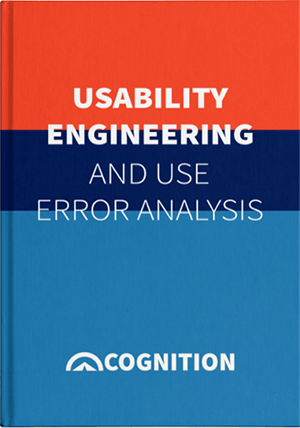Cognition Blog
Our blog navigates product development and compliance for the life science industry. Our solutions save time and money, delivering products with less risk.

By:
Cognition Corporation
July 11th, 2019
In life science industries, many believe that regulatory inspections are focused more on postmarket activities. This attitude isn’t surprising; however, its results can be detrimental. Many companies elect to focus on bolstering their postmarket compliance, allowing other regulatory activities such as design controls to lapse or deteriorate over time. Unfortunately for these companies, the truth about regulatory inspections is starkly different than their beliefs, and that can come back to haunt them.

By:
Cognition Corporation
July 9th, 2019
There are many ways to make your life science product development more productive, but these can sometimes be short-term or surface fixes. There are far deeper and more ingrained organizational issues that must be tackled in order to push your company’s productivity further. Beyond compliance or development planning, there are important initiatives your business needs to address that can change how your organization behaves in favor of greater productivity.

Subscribe to the blog and get this guide for free

By:
Cognition Corporation
June 25th, 2019
Product development in life science industries is not always consistent; it naturally ebbs and flows depending on a variety of factors, such as: project reviews, technological breakthroughs, changes in personnel, and so on. However, if your organization is struggling with being productive, some larger issues need to be addressed. To improve productivity at your life science organization, there are six different approaches you can take.

By:
Cognition Corporation
June 20th, 2019
Life science organizations are continuously attempting to handle the ever-changing needs of the marketplace—especially those of users and patients. With the rising number of retiring Baby Boomers set to double Medicare and Medicaid costs by 2020, it is advantageous for organizations to build products and services that meet the needs of this population. However, shifting demographics are causing growing pains that life science organizations need to factor in for long-term stability and growth.

Thought Leadership | Industry Updates
By:
Cognition Corporation
June 18th, 2019
FDA Form 483 inspectional observations can be disruptive to life science organizations, causing anything from delays in time to market to lost profit on currently marketed products. However, it’s vital to tackle the disruption to minimize these issues; procrastinating on or ignoring a 483 only makes the situation worse.

By:
Cognition Corporation
June 13th, 2019
Risk analysis is a vital component of life science product development. However, because FDA and other regulatory bodies aren’t specific about how to conduct risk activities that they deem appropriate, some organizations struggle in implementation. For teams dealing with this, there are a handful of ways to bolster your risk analysis.

Thought Leadership | Drug Stability
By:
Cognition Corporation
June 11th, 2019
Drug stability reporting is an integral part of pharmaceutical product compliance. For both the development of new drug products and the required annual monitoring processes, ensuring stability reports are done thoroughly and in a timely fashion is key. Quality is also important; the fidelity and integrity of all the data generated from drug stability studies and aggregated into your reports can impact your organization’s ability to market your drug products.

By:
Cognition Corporation
June 6th, 2019
Implementing a critical-to-quality (CTQ) program in your life science organization’s product development process can be a valuable effort. Identifying CTQ requirements and working through both CTQ Flowdown and Flowup activities can lead to more robust, well-made products that meet your user needs.

By:
Cognition Corporation
May 30th, 2019
Many life science organizations treat design thinking and design controls as separate product development stages. In reality, they can overlap; while this feels counterintuitive to some, it’s actually an important point that teams need to manage. For a more robust product development process, your teams should be thinking about how to use these two aspects of product development together. How design thinking can impact design controls is valuable to understand and evaluate as part of your organization’s plans for long-term growth.

info@cognition.us
1 (781) 271-9300
24 Hartwell Avenue,
Lexington, Massachusetts 02421
©2026 Cognition Corporation | Privacy Policy